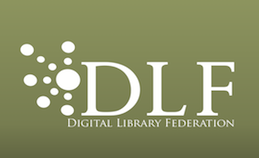New Modes of Publishing
Constellation C: Monday, October 31, 2:00 – 3:00PM
At the University of Michigan and at NYU, the university press and the library are merged, and experiments in print-on-demand and multimedia publishing are ongoing. The brand-new PressForward project at the Center for History and New Media at George Mason University is attempting to bypass scholarly presses altogether, trying to develop effective methods for aggregating scholarly content and building an open-source publishing platform. In this affiliated session with the unconference THATCamp Publishing (The Humanities and Technology Camp), we will work together to figure out what libraries need most right now in order to improve scholarly publishing. In true unconference style, we’ll figure out what exactly to do once we are all gathered together, but before that moment, here are only some of the many possible session activities:
Co-writing a letter to be sent to college and university deans, provosts, and presidents outlining why scholarly publishing must be reformed and how university administrations can best support new modes of publishing; or
Sketching out a workflow between authors, publishers, and libraries to ensure that scholarly works have linked bibliographies; or
Planning a study or research project on new modes of publishing; or
Brainstorming ways in which institutional repositories can be repurposed into publishing platforms; or
Other.
We’ll also have a chance in this session to discuss issues from THATCamp Publishing, and perhaps also to continue project work arising from that CLIR-sponsored event.
Session Resources
New Modes of Publishing Google Doc
Session Leaders
Amanda French, THATCamp Coordinator, Roy Rosenzweig Center for History and New Media. Her primary professional interest is in teaching digital methods to the next generation of humanities scholars. She has pursued this interest both for the Digital History Across the Curriculum project at NYU and as a Council on Library and Information Resources Postdoctoral Fellow at NCSU. She earned her doctorate in English from the University of Virginia in 2004, where she encoded texts in TEI for the Rossetti Archive and the Electronic Text Center.
Monica McCormick (New York University)
Shana Kimball is Interim Head of MPublishing, the primary academic publishing division of the University of Michigan. In this role, she develops and promotes new publishing initiatives, in collaboration with scholars, publishers, librarians, and technologists. Shana is Editor of The Journal of Electronic Publishing, and Editor-at-Large for digitalculturebooks, an imprint of the University of Michigan Press in digital humanities and new media studies. She is also a member of the steering group of Open Humanities Press, an international publishing collective in critical and cultural theory. She holds an MA in English Literature from the University of Michigan.
Amy Buckland is the eScholarship, ePublishing & Digitization Coordinator at McGill University Library, where she is responsible for scholarly communication, publishing initiatives, and making rare items from special collections available to the world through digitization. She loves information almost as much as Fluevog shoes, and thinks academic libraryland is ripe for a revolution. You can find her online at informingthoughts.com and in most social networks as Jambina.
Mike Furlough is Associate Dean for Research and Scholarly Communications at Penn State University. Joining Penn State in 2006 from the University of Virginia, he leads content stewardship services to support the life cycle of scholarly production, including curation, publication, preservation and outreach to researchers. He is one of the organizers of THATCamp Publishing, and the Taiga Forum, both held in conjunction with this DLF Forum.
Joan Fragaszy Troyano, Ph.D., is a Research Assistant Professor at George Mason University. At the Center for History and New Media, she is working with the PressForward initiative to explore and produce the best means for collecting, screening, and drawing attention to the vast expanse of scholarship that is currently decentralized across the web or does not fit into traditional genres such as the journal article or the monograph. She holds a PhD in American Studies from George Washington University.
